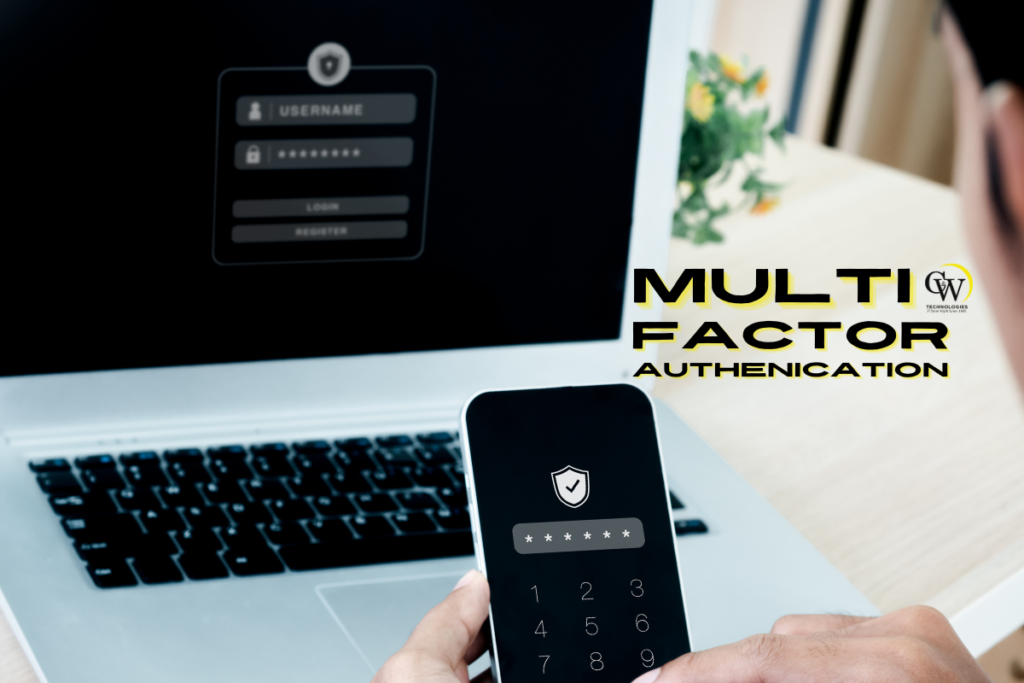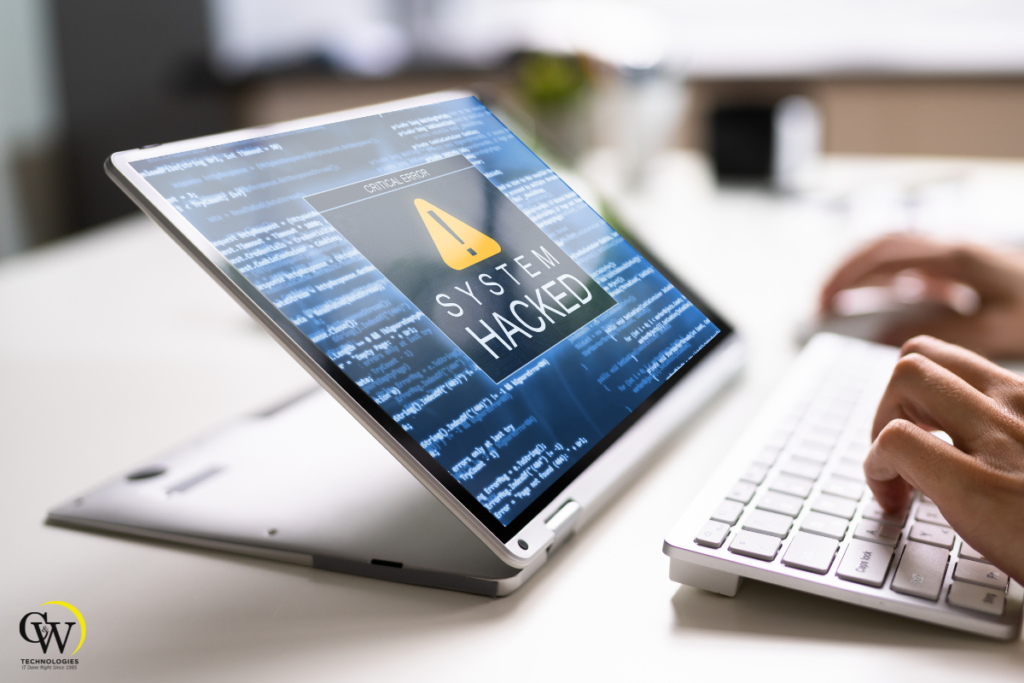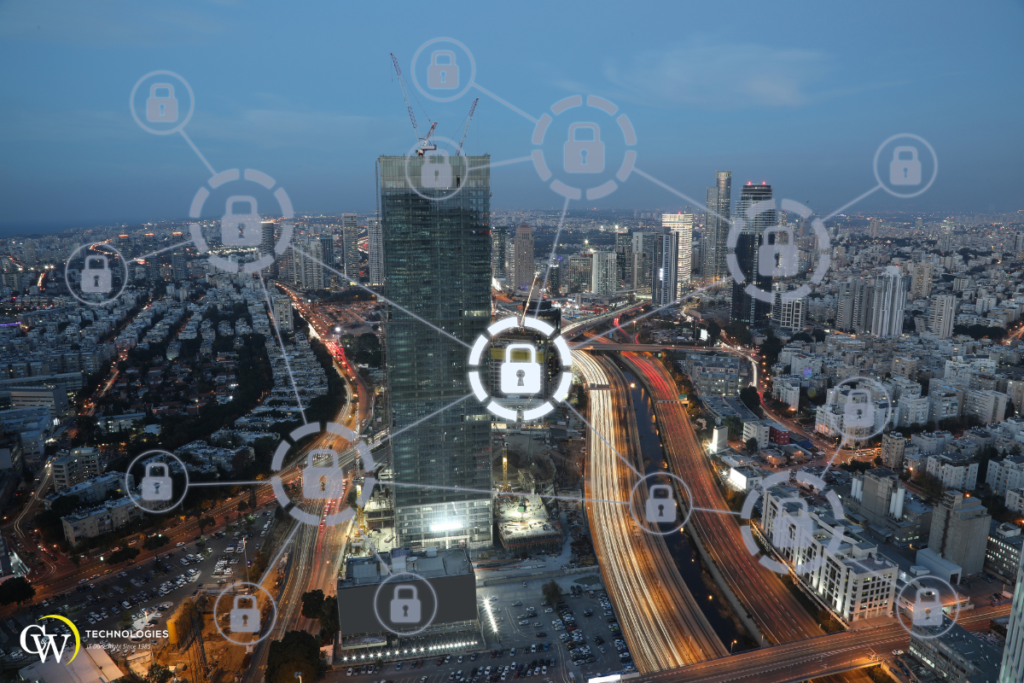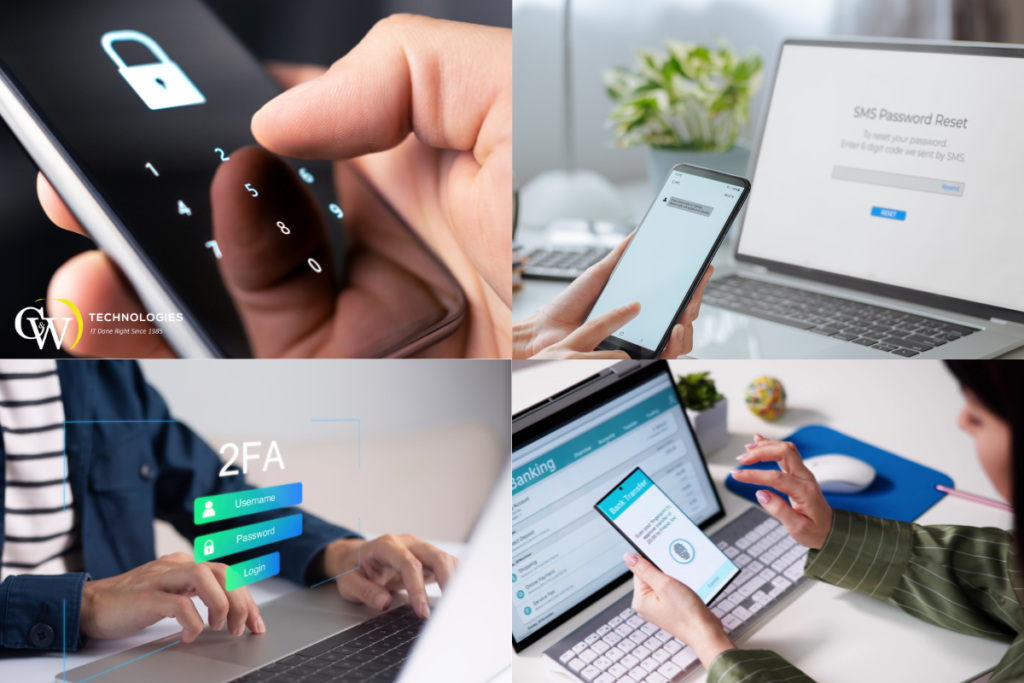5 Benefits of Multi Factor Authentication- A Necessity in Businesses

In today’s digital world, the need for secure and reliable authentication methods has become more crucial than ever before. With the increasing number of cyber threats, it is no longer enough to rely on traditional password-based authentication systems. This is where multi factor authentication comes into play. Multi factor authentication provides an additional layer of security by requiring users to verify their identity through multiple factors, making it increasingly difficult for hackers to gain access to sensitive information. In this blog, we will explore the importance of multi factor authentication and provide you with some eye-opening statistics that highlight why it is no longer a nicety but a necessity in today’s technology-driven landscape. So, let’s dive into the world of multi factor authentication and discover its significance in protecting our digital identities.
Multi Factor Authentication – What is it?
Multi factor authentication (MFA), adds an extra layer of security by requiring more than one form of identification to access accounts. This usually combines something the user knows, like a password, with something they have, like a physical token or app, or something they are, like a fingerprint or facial recognition. By requiring multiple factors, MFA helps prevent unauthorized access even if one factor is compromised.
What is Two Factor Authentication?
Two-factor authentication is a type of multi factor authentication requiring two forms of ID for login. It combines any two of the three factors: something you know, something you have, or something biometric. Even if one factor is compromised, the other adds a layer of security, protecting against hacking and unauthorized access.
What are Authentication Factors?
Authentication factors are the methods used in multifactor authentication, like passwords (something you know), physical tokens or apps (something you have), and biometrics like fingerprints or facial recognition (something you are). Each factor adds a layer of security, making it harder for hackers to access sensitive information.
The Importance of Multi Factor Authentication
With the rise of cyberattacks on personal information, multi factor authentication is now crucial for protecting digital identities. A Verizon report shows 81% of hacking breaches involve weak or stolen passwords, proving that password-only methods are vulnerable. Adding an extra layer of security with multi factor authentication greatly reduces the risk of unauthorized access, identity theft, and cybercrime.
What is Cybersecurity?
Cybersecurity refers to the measures taken to protect computer systems, networks, and data from unauthorized access, theft, or damage. It encompasses a range of technologies, processes, and practices that are designed to prevent cyberattacks and keep information secure. With the increasing reliance on technology in our daily lives, cybersecurity has become more critical than ever before to safeguard our personal and sensitive information from potential threats.
How Does Cybersecurity and Multi Factor Authentication Go Hand in Hand?
Multi factor authentication plays a crucial role in cybersecurity by adding an extra layer of protection against cyber threats. It significantly reduces the risk of unauthorized access and minimizes the impact of data breaches by making it harder for hackers to gain access to sensitive information. Without proper authentication measures, even the most robust cybersecurity systems can be compromised, highlighting the importance of multi factor authentication in safeguarding our digital identities.
What Happens if You Don’t Have Multi Factor Authentication?
Without multi factor authentication (MFA), your accounts are at risk of cyberattacks and data breaches. Passwords alone aren’t enough to protect sensitive information, as they can be stolen or guessed by hackers. Without a second layer of security, you risk unauthorized access and identity theft. With cyber threats on the rise, skipping MFA is a major security risk. It’s essential for both individuals and businesses to make MFA part of their cybersecurity strategy.
The Future of Multi Factor Authentication
As technology advances, so do cyber threats, making traditional password-based methods insufficient for protecting sensitive information. Multifactor authentication is expected to become more common as businesses and individuals work to stay ahead of threats. Advancements like biometric authentication will likely further improve the security and convenience of these methods.
5 Benefits of Multi Factor Authentication
- Enhances Security – Multi factor authentication enhances security by adding a layer of protection beyond passwords, making it harder for hackers to access systems.
- Prevents Identity Theft – Multi factor authentication adds an extra layer of security to protect against identity theft and ensure only authorized users access sensitive information.
- Compliance Requirements – Many industries require multi factor authentication to safeguard customer data and prevent breaches.
- User Convenience – Multi factor authentication uses biometrics like fingerprints or facial recognition for easier, password-free authentication.
- Cost-Effective – Despite the initial cost of implementing multi factor authentication, it can save businesses millions in potential losses and damages caused by data breaches.
How to Make Multi Factor Authentication a Staple in Businesses?
- Education and Awareness – It is essential for businesses to educate their employees about the importance of multi factor authentication in safeguarding sensitive information and preventing cyberattacks.
- Implement Multi factor authentication Across All Systems – Businesses should implement multifactor authentication across all systems, including employee accounts, customer-facing platforms, and other critical areas that contain sensitive data.
- Regularly Update Authentication Methods – As technology evolves, so do cyber threats. Therefore, it is crucial for businesses to regularly update their multi factor authentication methods to stay ahead of potential vulnerabilities.
- Provide Flexibility for Users – While multi factor authentication adds an extra layer of security, it should not hinder user experience.
Why Do Businesses Need Multi Factor Authentication?
Multi factor authentication is crucial for businesses that store sensitive data. With more employees working remotely and using various devices, multifactor authentication adds an essential layer of security.
What Types of Businesses use Multi Factor Authentication?
Multi factor authentication is used by a wide range of businesses and organizations, from small startups to large enterprises. However, it is especially critical for industries that deal with sensitive information such as healthcare, finance, and government agencies. These businesses are often prime targets for cybercriminals due to the valuable data they hold, making multi factor authentication an essential tool in protecting their systems and networks.
Here are some examples of job roles or positions across various industries that commonly use multi factor Authentication (MFA) as part of their security protocols:
- Healthcare Professionals
- Doctors
- Nurses
- Pharmacists
- Medical researchers
- Financial Services:
- Bank tellers
- Financial advisors
- Accountants
- Investment bankers
- Government Agencies:
- Law enforcement officers
- Government employees
- Intelligence analysts
- Military personnel
- IT and Cybersecurity Professionals:
- Network administrators
- System administrators
These are just a few examples, and the use of multi factor authentication extends to many other job roles and industries. Regardless of the specific job, multifactor authentication plays a crucial role in safeguarding sensitive information and protecting digital assets.
Is Multi Factor Authentication a Necessity?
In short, yes. With the growing number of cyber threats and data breaches, multi factor authentication has become a necessity for individuals, businesses, and organizations alike. As technology continues to advance, hackers are finding new ways to exploit vulnerabilities in traditional authentication methods. It is essential to stay ahead of these threats by adopting more secure authentication practices like MFA.
Who is C&W Technologies?
C&W Technologies provides top-tier cybersecurity solutions for businesses, specializing in multifactor authentication to safeguard digital assets from cyber threats. Our experts stay up to date on the latest cybersecurity trends to deliver effective, reliable solutions. Working with industries like healthcare, finance, and government, we help secure sensitive data and prevent breaches. Ready to strengthen your organization’s cybersecurity? C&W Technologies is your trusted partner for multifactor authentication. Protect your business today!
Contact Us Today
To learn more about multifactor authentication and how C&W Technologies can help secure your business, contact us by visiting our website at www.cwnow.com or contact us directly with the following form below.
Frequently Asked Questions (FAQ’s)
Can I use the same authentication method for multiple accounts?
While it is not recommended, some MFA systems allow you to use the same method for multiple accounts. However, it is best practice to have unique authentication methods for each account to increase security.
Can I use my mobile phone as an authentication device?
Yes, many MFA solutions offer the option to use a mobile phone as an authentication device through SMS or authenticator apps.
How does user authentication work with online accounts?
User authentication verifies the identity of a user attempting to access an online account by requiring them to provide a combination of factors such as passwords, security questions, or biometric information.
What is access control and how does it relate to MFA?
Access control refers to the process of restricting access to a system or resource only to authorized individuals. MFA enhances access control by requiring multiple factors to verify a user’s identity, making it harder for unauthorized individuals to gain access.
Can I use security keys for multifactor authentication?
Yes, security keys are another form of authentication that can be used as part of an MFA solution.
How can I restrict access to my accounts using MFA?
By setting up MFA for your accounts, you can > limit access to only those who can provide the required authentication factors, making it harder for unauthorized individuals to gain access.
Do I need to create new passwords for each factor in MFA?
No, you do not need to create unique passwords for each factor. However, it is recommended to use strong and unique passwords for your accounts as an added security measure.
How does MFA protect user identities?
By requiring multiple factors of authentication, MFA adds an extra layer of protection against identity theft and fraudulent account access.
Can someone still gain unauthorized access even with MFA?
While no security measures can guarantee 100% protection against cyber threats, MFA significantly decreases the likelihood of unauthorized access by adding multiple layers of authentication. However, it is still important to stay vigilant and follow best practices for online security.
Is MFA necessary for mobile devices?
Yes, as mobile devices are often used to access sensitive information or accounts, it is crucial to have MFA in place to protect them from potential cyber threats. Thus, MFA should be implemented across all devices and platforms for maximum security.
How can I set up an authentication system that works with my existing security settings?
C&W Technologies offers customizable MFA solutions that can be integrated with your current security settings to ensure a seamless and secure authentication process. Contact us today for more information.
What is an authentication code and how does it work in MFA?
An authentication code is a unique, one-time code generated by an MFA system that is used to verify a user’s identity. It can be sent through various methods such as SMS or authenticator apps.
How does two-step authentication differ from traditional username and password login?
Two-step authentication adds an extra layer of security by requiring the user to provide a second form of verification, such as a code or biometric scan, after entering their username and password.
Is it safe to use fingerprint scans as an authentication method?
Fingerprint scans are secure and commonly used in MFA, but it’s essential to follow best practices and keep devices protected to avoid vulnerabilities.
Why is identity verification important in MFA?
Identity verification ensures that the person trying to access an account or system is indeed who they claim to be. Without proper verification, unauthorized individuals may gain access and compromise sensitive information.
What is a knowledge factor in MFA?
A knowledge factor refers to something that only the user should know, such as a password or security question answer. This adds another layer of security in addition to other factors like biometrics or authentication codes.
Can MFA be used for multiple applications or accounts?
Yes, MFA can be used for multiple applications and accounts, providing an added layer of security across all systems and platforms.
How do I create strong and secure passwords for my accounts?
Use strong passwords with a mix of letters, numbers, and symbols. Avoid easily guessable information or reusing passwords. A password manager can help create and store unique passwords securely.
Are there any additional security measures I can take with MFA?
Yes, you can add additional security measures such as biometric authentication, IP address restrictions, or time-based access controls to further enhance the security of your accounts and systems.
How does MFA help with system access?
MFA enhances login security by adding an extra layer of protection, preventing unauthorized access to systems and sensitive data. It offers greater control over resource access and is a key part of any cybersecurity strategy. Contact C&W Technologies to learn about their customizable MFA solutions.
Why should I create unique passwords for each account?
Using the same password for multiple accounts increases the risk of cyber attacks. To enhance security, create strong, unique passwords for each account and reduce the chance of a widespread breach.
Can MFA help prevent phishing attacks?
MFA prevents phishing by adding an extra authentication layer, making it harder for hackers using social engineering to gain unauthorized access.
Is MFA only for businesses or can individuals use it as well?
MFA offers an extra layer of security for both businesses and individuals by protecting sensitive information and preventing unauthorized access or identity theft. It’s a valuable tool against cyber threats.
How does a fingerprint scan work in MFA?
Fingerprint scans in MFA verify users by capturing their unique fingerprint pattern and comparing it to the stored data.
Can I use MFA on my mobile devices?
Yes, MFA can be used on mobile devices to provide an added layer of security for accessing accounts and sensitive information.
How many factors are required for MFA?
MFA typically requires two or more factors of authentication such as a password and an authentication code sent to a user’s mobile device.
What is the Microsoft Authenticator app and how does it work in MFA?
The Microsoft Authenticator app is a popular tool used for MFA. It generates unique codes that expire after a short period of time, providing an extra layer of security for account access.
How can I create strong and secure passwords for my accounts when using MFA?
You can use a combination of letters, numbers, and symbols to create strong passwords for your accounts. It’s important to avoid easily guessable information or reusing passwords across multiple accounts.
Is gaining access through MFA more difficult for hackers?
Yes, MFA makes it more challenging for hackers to gain unauthorized access as they would need to bypass additional security measures such as codes or biometric scans in addition to traditional login methods.
What is an adaptive multi-factor authentication system?
Adaptive multi-factor authentication enhances security by adjusting requirements based on risks like location, device, or unusual login behavior, ensuring protection without disrupting user experience.
What are the different MFA authentication methods?
MFA can use a variety of authentication methods such as biometric scans, SMS codes, authenticator apps, security questions, or hardware tokens to verify a user’s identity.
How does multi-factor authentication technology work?
Multi-factor authentication technology combines multiple factors of verification to ensure the authenticity of a user before granting access to sensitive information or systems.
Why is it important to have multiple authentication factors in MFA?
Using multiple authentication factors increases security by making it harder for hackers to gain unauthorized access.
Are there any additional authentication factors besides passwords and codes?
Yes, there are additional authentication factors such as biometric scans, hardware tokens, or security questions that can be used in MFA to enhance security and prevent unauthorized access.
Can MFA be linked to a user’s mobile device?
Yes, many MFA services offer the option to link a user’s mobile device for added convenience and security. The user can receive codes or use biometric scans directly from their phone.
How does MFA protect my phone number and email address?
MFA adds an extra verification step to protect your accounts, preventing hackers from accessing them with stolen information.
What is a biometric scan in relation to MFA?
A biometric scan is an MFA authentication method that uses unique biological traits like fingerprints or facial recognition for secure and convenient identity verification.


